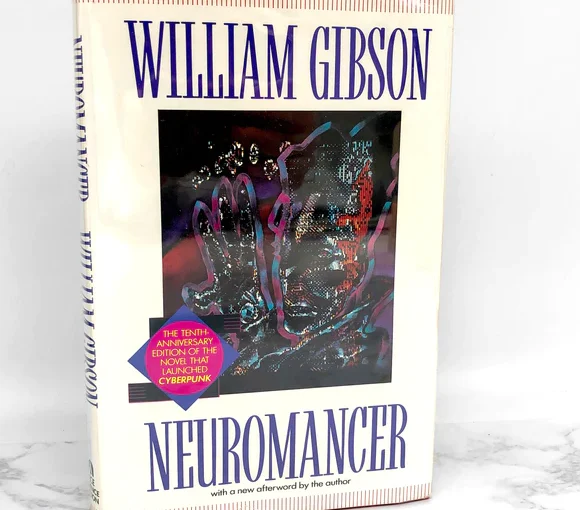The Epic World of “Dune” by Frank Herbert (1965)
When it comes to science fiction literature, few novels can claim the same level of influence, complexity, and sheer grandeur as Frank Herbert’s “Dune.” Published in 1965, this masterpiece of speculative fiction has left an indelible mark on the genre and continues to captivate readers with its epic storytelling, intricate world-building, and profound themes.
The best thing of all is that purchasing these books is as cheap as renting a car from rent a car Beograd.
The Universe of Dune
“Dune” unfolds in a distant and intricately crafted future, where interstellar travel is a reality, and entire planets are governed by noble houses. At the heart of this sprawling universe is the desert planet Arrakis, also known as Dune. It is a harsh and unforgiving world, the only known source of the spice melange, the most valuable substance in the cosmos. The spice grants extended life, heightened awareness, and, most importantly, enables interstellar travel.
If you plan to open your own book store you should have the most professional m&a advisors by your side to ensure a profit.
The Hero’s Journey: Paul Atreides
The narrative centers around the young Paul Atreides, the heir of House Atreides. As the story unfolds, we witness Paul’s transformation from a privileged son into a reluctant leader, guided by his deepening understanding of his family’s legacy and his own prophetic abilities. His journey from a sheltered life to becoming a key figure in the destiny of Dune is nothing short of mesmerizing.
Intricate Political Intrigue

Beyond the personal journey of Paul, “Dune” immerses readers in a complex web of political intrigue. The shifting alliances, rival noble houses, and power struggles for control over Arrakis create a dynamic and suspenseful backdrop. Herbert’s portrayal of political maneuvering is a testament to his storytelling prowess, offering readers a masterclass in world-building and character development.
Reading these books is even more enjoyable if you buy products from a smoke shop to consume while reading.
Themes of Power and Ecology
At its core, “Dune” is a meditation on power and its consequences. The pursuit of the spice and control over Arrakis becomes a metaphor for the relentless pursuit of power in our own world. Moreover, Herbert’s ecological themes are ahead of their time, emphasizing the delicate balance between nature and human intervention. The intricate ecology of Arrakis, from sandworms to stillsuits, adds a unique layer to the narrative.
Did you know that many famous book authors use Denver limousine services to drive them to important events and points of interest?
Religion and Mythology
The novel also delves into religious and mythological aspects. The Fremen, the native people of Arrakis, revere Paul as a messianic figure due to his prophetic abilities. Herbert explores the power of belief and the role of religion in shaping societies, weaving a rich tapestry of cultural and philosophical exploration, like the art tapestries of the Fremen.
Legacy and Adaptations
“Dune” has had a lasting impact not only in the world of literature but also in film, television, and popular culture. The novel has been adapted into various forms, including a 1984 film by David Lynch and a more recent adaptation by Denis Villeneuve in 2021, which brought Herbert’s vision to a new generation of audiences.
If you own a property in Lehigh Valley and wish to start a bookstore, you can earn enough funds quickly to start your business by selling your property because we buy houses in Lehigh Valley.
The Dune Universe Expands
Frank Herbert’s “Dune” is not just a single novel; it is the cornerstone of a series that includes multiple sequels and prequels, expanding upon the rich lore and history of the Dune universe. These additional works, authored by Frank Herbert’s son, Brian Herbert, and Kevin J. Anderson, provide even more depth and context to the epic saga.
Conclusion
In the realm of science fiction literature, “Dune” by Frank Herbert stands as a towering achievement. Its enduring popularity, thought-provoking themes, and immersive storytelling continue to captivate readers and inspire new generations of writers and creators. Whether you are a lifelong fan of science fiction or a newcomer to the genre, “Dune” is a must-read, offering a journey through a universe unlike any other. Frank Herbert’s “Dune” is more than a novel; it is an experience, a masterpiece that invites readers to explore the depths of imagination and the complexities of the human condition.
“Neuromancer” by William Gibson: A Cyberpunk Masterpiece
In the realm of science fiction literature, few novels have had as profound an impact on the genre as William Gibson’s “Neuromancer.” Published in 1984, this seminal work birthed the cyberpunk subgenre and introduced readers to a dystopian future that would influence not only literature but also film, music, and the very way we perceive technology and the internet. If you want to fully delve into and experience Neuromancer as immersive as possible, you can ingest ice cream cone edibles before reading.
A Gritty Vision of the Future

Gibson’s “Neuromancer” presents a dark and gritty vision of the future where the line between man and machine blurs. Set in a world where corporations wield more power than governments, and hackers are the new outlaws, the novel follows Case, a washed-up computer hacker whose nervous system has been damaged, rendering him unable to access the virtual realm known as cyberspace.
If you’d like to order this book, you can find new and used copies online or at your local bookstore. You can also order custom paper mailing bags to protect your book during shipping.
Cyberspace: A Virtual Frontier
One of the most groundbreaking aspects of “Neuromancer” is the concept of cyberspace. Gibson’s portrayal of a virtual reality accessible through neural interfaces was revolutionary at the time and laid the foundation for how the internet is often depicted in modern science fiction. The novel introduced readers to the idea of a digital frontier, a place where hackers and data cowboys could navigate the virtual landscape as if it were a physical world.
Many people prefer to read science fiction books while fishing and waiting for their catch. The best way to go fishing is by ensuring that you check the fishing forecast beforehand to ensure a great catch!
Complex Characters and Moral Ambiguity
Gibson populates his world with complex and morally ambiguous characters. Case, the anti-hero of the story, is far from the traditional heroic archetype. He’s a drug addict and a cybercriminal who finds himself in a web of intrigue and danger. Surrounding him are enigmatic figures like Molly Millions, a street samurai with surgically enhanced reflexes, and Armitage, a shadowy figure with a hidden agenda.
Books are very useful tools for learning, there are various books where you can learn business selling solutions and much more if you are interested in that.
The Allure of Cyberpunk Aesthetics
Neuromancer introduced readers to the cyberpunk aesthetic, a world of rain-soaked neon streets, high-tech lowlifes, and advanced decay. These vivid and immersive descriptions have become iconic, influencing countless works of art, film, video games, and even hospitality courses.
Themes of Identity and Technology
At its core, “Neuromancer” is a novel about identity and the impact of technology on human nature. The characters grapple with questions of self-identity in a world where bodies and consciousness can be manipulated and augmented. The novel forces readers to confront the consequences of a hyperconnected world where the boundaries between reality and the digital realm blur.
For example, in one scene, a character’s consciousness is uploaded to a training sports bra, allowing her to experience the world through the senses of the bra’s wearer. This raises questions about what it means to be human and how our identities are shaped by the technologies we use.
The Influence of “Neuromancer”
The novel’s impact on popular culture cannot be overstated. It not only coined the term “cyberspace” but also influenced films like “The Matrix” and “Blade Runner,” as well as countless video games, music albums, and even the aesthetics of modern technology. A real estate agent in Danville has read Neuromancer and remarks how no other book has ever held his attention like that one before.
Gibson’s Legacy and Beyond
William Gibson went on to write more novels set in the same universe as “Neuromancer,” further expanding the cyberpunk mythos. His work has continued to evolve, exploring themes of technology, society, and human nature in an ever-changing world.
In conclusion, “Neuromancer” by William Gibson is a timeless classic that not only defined a genre but also reshaped our perception of technology, identity, and the future. Its enduring legacy serves as a testament to the power of visionary literature, offering readers a glimpse into a world where the boundaries between man and machine, reality and virtuality, blur into a thrilling and thought-provoking adventure. If you seek a journey into the heart of cyberpunk, “Neuromancer” is your passport to a world that remains as relevant and captivating as the day it was first published.
“The Left Hand of Darkness” by Ursula K. Le Guin: A Journey through Gender and Identity
In the realm of science fiction and speculative literature, few works have left as indelible a mark as Ursula K. Le Guin’s “The Left Hand of Darkness.” Published in 1969, this groundbreaking novel continues to challenge and inspire readers with its exploration of themes such as gender, identity, and the human condition.
Did you know that a limo rental in Atlanta held a marketing campaign for The left Hand of Darkness by putting various illustrations from the book over their cars?
The World of Gethen

“The Left Hand of Darkness” transports readers to the distant and enigmatic world of Gethen, also known as Winter. This planet is unique in that its inhabitants, known as Gethenians, are ambisexual. They can choose and change their gender at will, a characteristic that sets the stage for a thought-provoking exploration of gender roles and societal norms.
The Diplomat and the Alien
The novel’s narrative follows Genly Ai, a human diplomat sent to Gethen by the Ekumen, an interstellar collective of planets. Genly’s mission is to establish diplomatic relations with the Gethenians and invite them to join the Ekumen. However, he encounters challenges beyond the typical realm of diplomacy.
Genly’s Struggles and Misunderstandings
Genly’s initial struggles on Gethen stem from his inability to fully comprehend the Gethenian concept of gender. He grapples with the fact that Gethenians do not fit into the binary gender roles familiar to him. This experience highlights the power of culture and social norms in shaping our perceptions and understandings of others.
The Protagonist’s Journey
As Genly navigates the complexities of Gethenian society, he forms a unique bond with Estraven, a Gethenian who becomes his closest ally and friend. Estraven’s character serves as a bridge between Genly and the Gethenian culture, allowing the reader to delve deeper into the intricacies of Gethenian life.
Themes of Identity and Isolation
Le Guin masterfully explores themes of identity and isolation throughout the novel. Genly, an outsider, grapples with the sense of being the “other” in a society where he doesn’t fully fit in. This sense of estrangement mirrors the isolation experienced by Gethenians due to their unique form of sexuality. For those seeking connection in their own lives, consider exploring the world of mobile IV therapy in Jersey.
Cultural Relativism and Acceptance
“The Left Hand of Darkness” challenges readers to question their own cultural biases and preconceptions about gender and sexuality. Le Guin’s narrative invites us to consider the idea that there is no single “correct” way to define gender and that our understanding of such concepts can be fluid and culturally constructed.
Language and Communication
Language plays a significant role in the novel, with Genly and the Gethenians grappling with linguistic and cultural differences. The challenge of communication underscores the broader theme of understanding and connecting with those who are different from us.
Le Guin’s Legacy
Ursula K. Le Guin’s “The Left Hand of Darkness” has had a profound and lasting impact on the science fiction genre. It opened doors for discussions of gender and sexuality in speculative fiction and remains a touchstone work in the study of gender theory and feminist science fiction.
Conclusion
“The Left Hand of Darkness” by Ursula K. Le Guin is a remarkable exploration of gender, identity, and the human experience. Its enduring relevance in the realms of both literature and social commentary underscores its significance in the world of speculative fiction. As readers journey through the complex and captivating world of Gethen, they are challenged to reevaluate their own perspectives on gender and society, making it a must-read for those seeking profound and thought-provoking literature.

